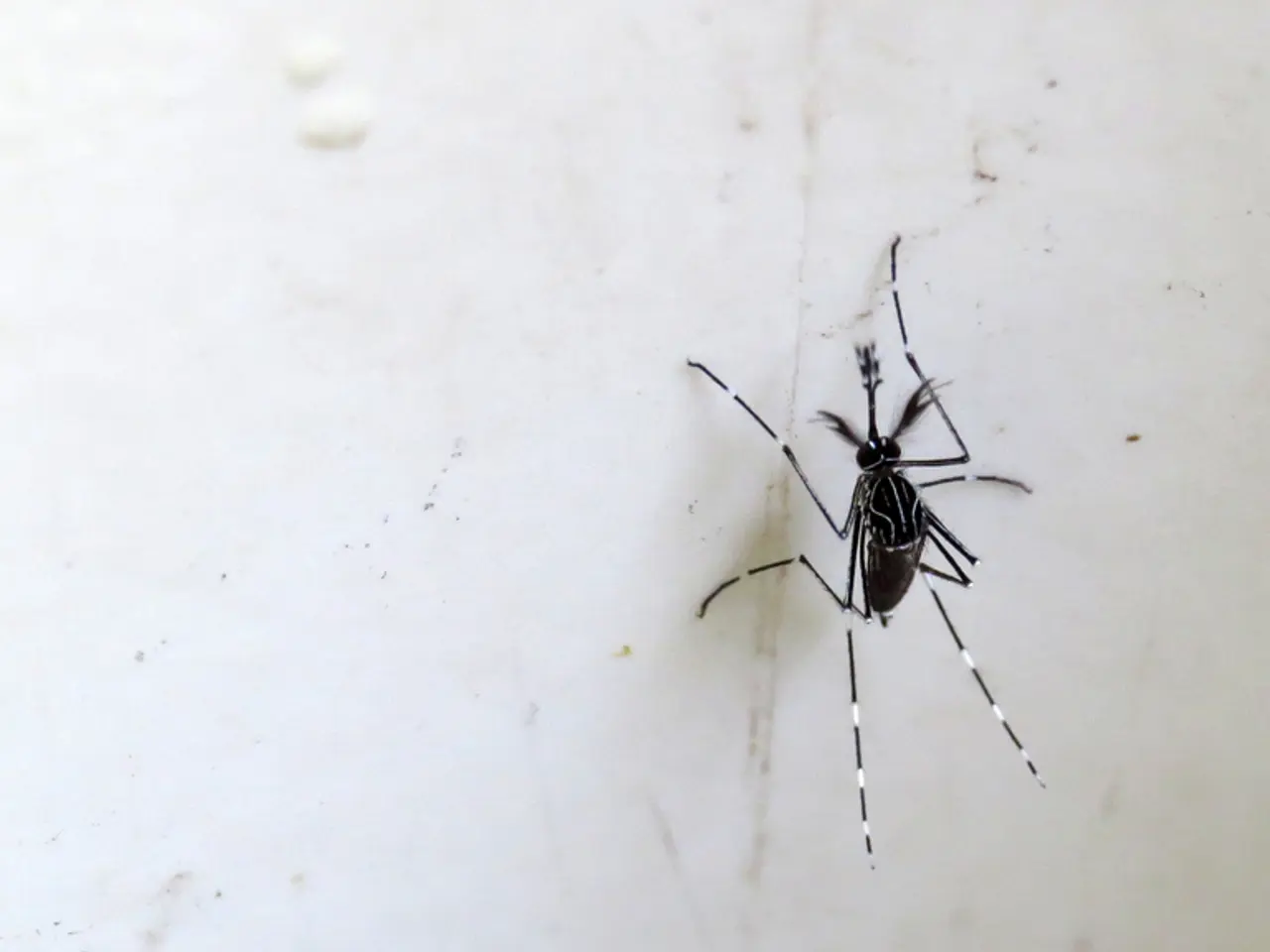Rise in Imported Cases of Chikungunya Virus in Bavaria
Rising Cases of Chikungunya Virus in Bavaria: What Travelers Need to Know
Bavaria, Germany, has reported a significant increase in cases of the Chikungunya virus this year, with 24 confirmed cases as of the latest data. This surge in infections is primarily due to individuals returning from endemic regions and the presence of competent mosquito vectors, such as the Aedes mosquitoes, within the region.
The Bavarian Minister of Health and Prevention, Judith Gerlach (CSU), has emphasised the importance of vaccination for travelers visiting risk areas. The Standing Vaccination Commission at the Robert Koch Institute recommends vaccination for individuals aged 12 and above for the Chikungunya virus. However, it's crucial to remember that vaccines can help prevent infection, but they are not a guarantee. Consistent mosquito protection measures are also strongly advised.
The Chikungunya virus is transmitted by infected Aedes mosquitoes, primarily Aedes aegypti and Aedes albopictus. Symptoms of the virus include sudden high fever (above 39°C or 102°F), severe joint and muscle pain, rash, headache, fatigue, nausea, and eye redness. These symptoms typically last about a week, but joint pain can persist for months or even years. Severe complications are possible, particularly in elderly individuals or those with underlying health conditions.
To protect against mosquito bites, travelers are advised to wear long-sleeved shirts and long pants, use insect repellents containing DEET, Picaridin, or IR3535, and stay in well-screened or air-conditioned rooms to avoid mosquito exposure. Those experiencing symptoms after visiting endemic areas should seek medical care promptly.
At present, there is no widely available vaccine globally for the Chikungunya virus. However, some vaccines have regulatory approval in limited regions for high-risk individuals or travelers. Treatment for the virus focuses on symptom relief, with rest, hydration, and medications such as acetaminophen (paracetamol) for fever and pain. It's important to avoid NSAIDs (e.g., ibuprofen, aspirin) until dengue infection is ruled out to reduce bleeding risk. Severe or prolonged joint pains may require medical follow-up and occasionally treatments like methotrexate for arthritis-like symptoms.
It's important to note that infants under one year old, the elderly, and people with certain pre-existing conditions are still at risk of complications from the Chikungunya virus, even with vaccination and mosquito protection.
In conclusion, the increase in Chikungunya cases in Bavaria is linked to travel and mosquito presence. By taking rigorous mosquito bite precautions and seeking medical care if symptoms develop, travelers can help protect themselves and reduce the spread of the virus.
[1] Bavarian State Health and Food Safety Authority [2] Robert Koch Institute [3] World Health Organization [4] Centers for Disease Control and Prevention [5] European Centre for Disease Prevention and Control
- To safeguard one's health and wellness while traveling, it's essential to prioritize fitness and exercise routines in addition to understanding the risks associated with chronic diseases like the Chikungunya virus, particularly when visiting regions with a high prevalence of medical-conditions such as this virus.
- As mental health plays a crucial role in overall well-being, those who are experiencing stress or anxiety regarding the Chikungunya virus can seek counsel from healthcare professionals at institutions like the Bavarian State Health and Food Safety Authority, the World Health Organization, or the Centers for Disease Control and Prevention.
- Given the long-term joint pain that can result from the Chikungunya virus, it's crucial for individuals who suffer from chronic health issues, such as chronic-diseases, to exercise caution before traveling to endemic areas and to consult with their physicians regarding their unique health-and-wellness needs.




